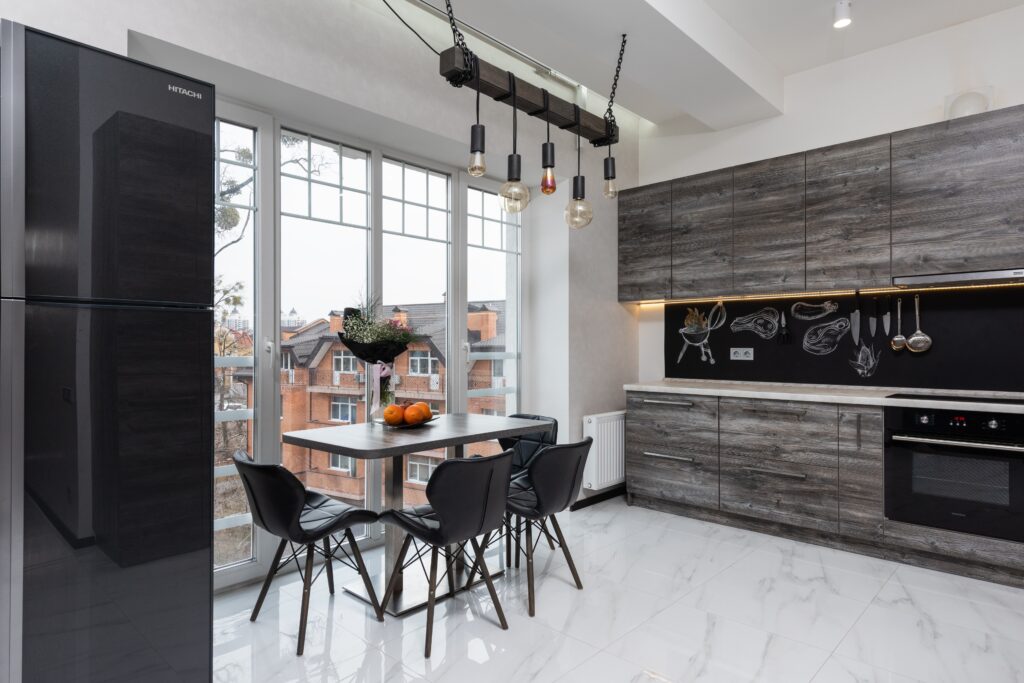Households are guilty of plugging home appliances without a second thought of how much energy they use or how they operate.
 If you’re one of these people, you’ll need to know how much electricity certain appliances are consuming while they are running. This is vital, as the information you obtain can help you save money and boost your energy efficiency.
If you’re one of these people, you’ll need to know how much electricity certain appliances are consuming while they are running. This is vital, as the information you obtain can help you save money and boost your energy efficiency.
This is a contributed post and does not necessarily reflect the opinions of Meet The Harris Family.
Which appliances are responsible for making your electric bill skyrocket?
Keep these energy-hungry devices in mind:
1. Air Conditioner
There’s nothing better than a cool living space on a hot day. This is especially true for homeowners who reside in climates where having an air conditioning system is mandatory. Although AC units can keep you cool, they can spike up your electricity consumption and utility bill. This appliance can use about 200 to 1,800 kWh every month.
If you can’t do away with using an air conditioner, you can take simple measures to help boost the efficiency of your cooling system. Given that the coolant charge and insulation are crucial to keeping your home appliance operating efficiently, you can have an HVAC specialist check your unit annually. If necessary, this professional will repair your air conditioner to keep this appliance running smoothly.
2. Dehumidifier
This household appliance can get rid of moisture from the air. Dehumidifiers are particularly useful in wet and humid areas, such as the Pacific Northwest and South Florida. They eliminate excess water vapor in the air, which contributes to the growth of mold and promotes a cozy environment for dust mites.
Many households leave this home appliance operating all the time. This is the reason dehumidifiers are such a huge energy consumer. This appliance may consume 160 kWh per month, and the expense can add up if you use this 24/7.
As a homeowner, you can take steps to prevent the dehumidifier from wasting energy. A few suggestions you can do are the following:
- Use a digital humidistat (instead of the dial version) for better precision.
- Configure the humidistat to a reasonable number. The average humidity for basements, for instance, is 50 percent. If you set the humidistat at a lower number, the home appliance might end up staying on all the time.
- Close off the room where the dehumidifier is working. This usually entails shutting the doors and windows. A single-room dehumidifier will not be able to remove moisture from the whole house efficiently.
3. Refrigerator
This home appliance is a kitchen’s best friend. Refrigerators keep produce, ice cream and other foods fresh and cool. They can, however, use up a bit of electricity. One reason behind this is that they’re on all the time.
Refrigerators work around the clock to keep food cool. Although fridges use an average of 180 watts, you need to remember that this home appliance operates 24 hours a day, 365 days a year. This is where the numbers go up. If the average wattage was higher, you can expect the numbers to be more drastic.
If you want to reduce your energy usage, do your best to follow good refrigeration habits. You could, for instance, label food to help you find what you are looking for quickly. Also, make sure that you do not open the refrigerator door too often. Doing so will push this home appliance to work harder and cause your electricity bill to rise.
4. Dishwasher
Washing or cleaning dishes are a less stressful chore when you have this home appliance in your kitchen. These devices, unfortunately, can use some electricity that makes them not always necessary to use.
Many dishwashers that you find on the market carry an average wattage of 1800. Even if you use this household appliance twice a week for around 4 hours at most, the total comes out to be approximately 748.8 kWh. This figure can add up, especially if you’re washing a lot of dishes.
To save money on electricity, ask yourself, “Do I really need a dishwasher?” If you can wash the plates by hand, do so. If you don’t have the time to do this chore, get someone to do this for you. Cleaning the dishes by hand helps eliminate the need for using the dishwasher constantly.
5. Television
TVs consume an average of 400 watts. That comes out to 876 kWh. If you like watching television all day, don’t be surprised to find a high energy bill.
If you want to save energy, reduce the hours the TV is on. Instead of staying glued to the screen, leave your seat and do something more productive with your life.
These appliances use a lot of energy that can affect your monthly utility bill. If you can’t get rid of them, do your best to follow energy conservation habits to save money.
